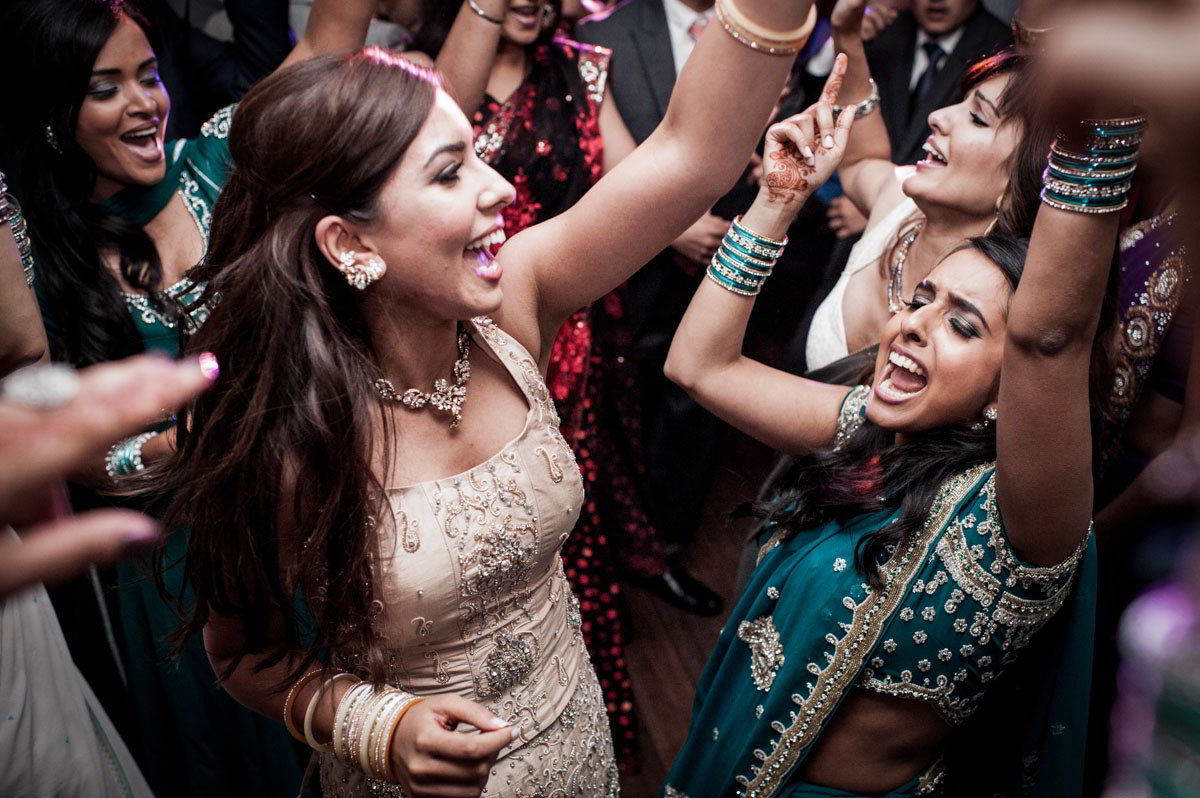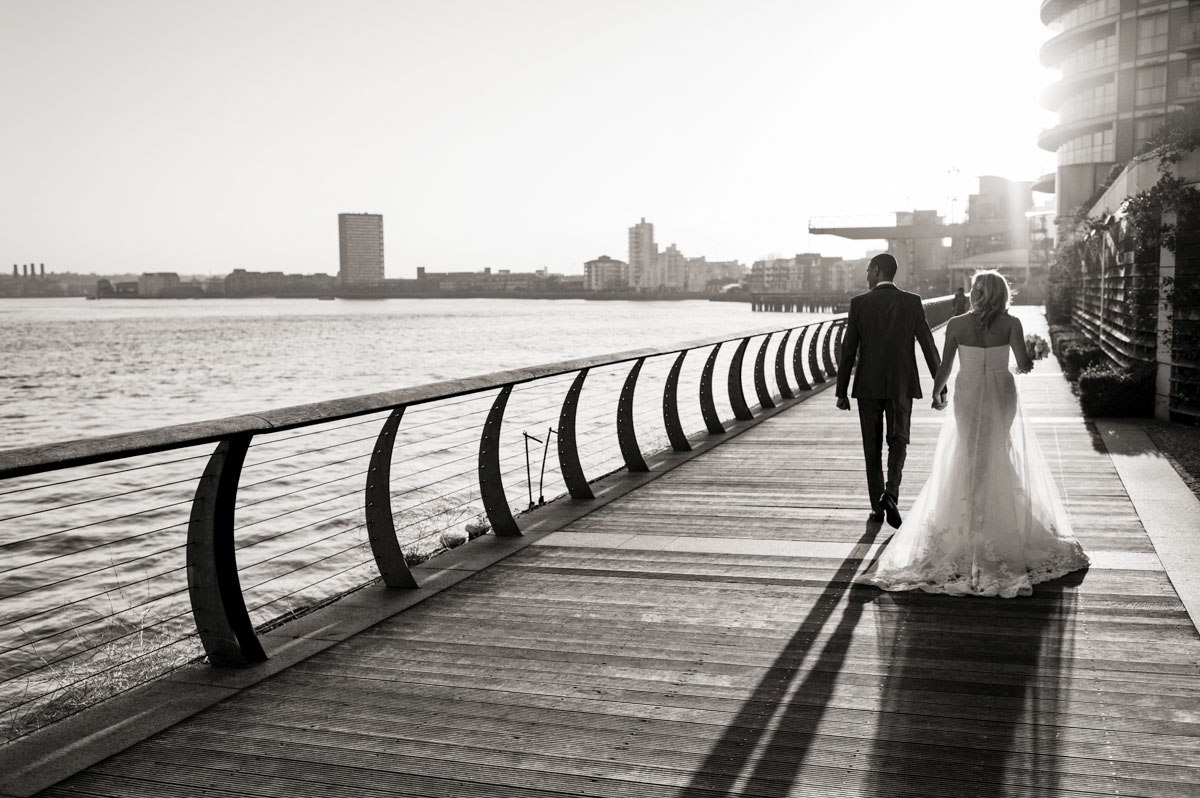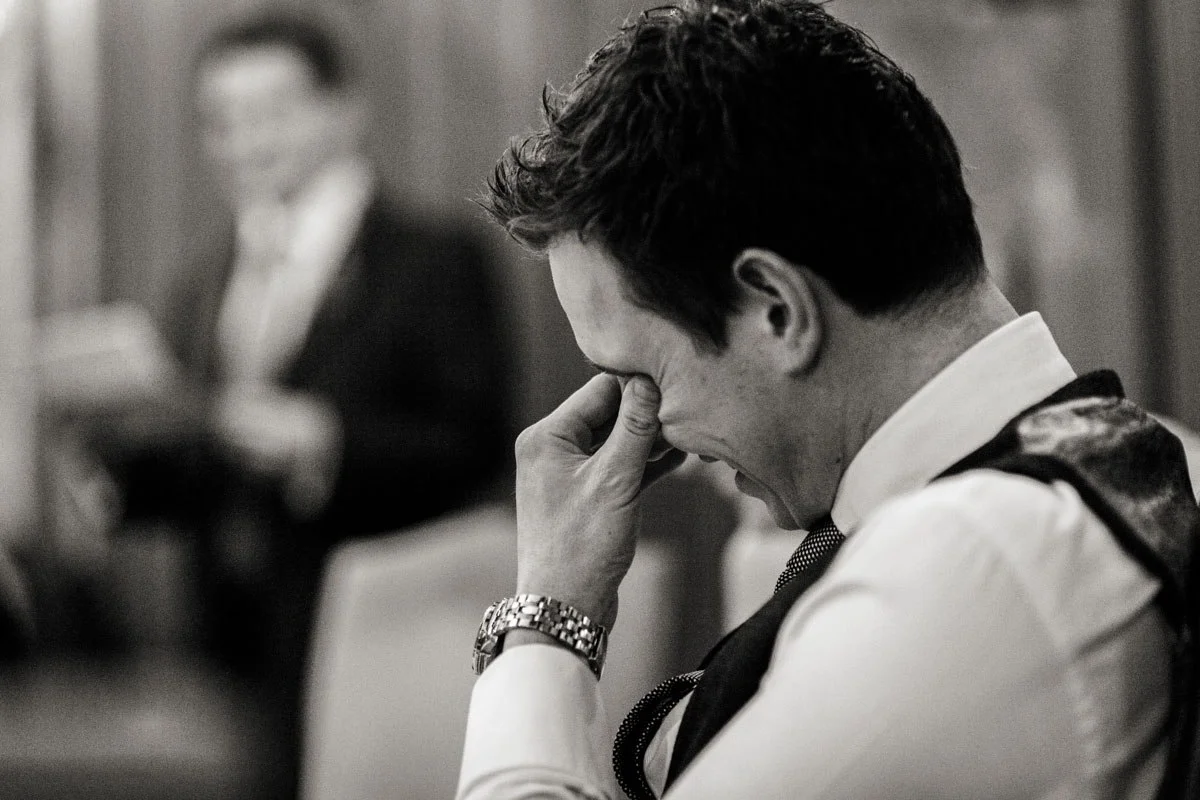I was recently interviewed by the highly talented photographer Crash Taylor for a new industry publication called Turning Pro...
Why did you become a photographer? Can you tell us about the path you took to become a professional wedding photographer? Have you had any formal training, or if not how did you teach yourself?
I've always been interested in the visual arts, whether that's drawing, sculpture or textile. I started off in art and design, mainly sketches of people and still life and had friends that could sketch incredibly loosely and create masterpieces whereas I, on the other hand, really had to work at it.
Because I spent so much longer on my drawings I began to use photographic stills to refer to. Before too long I was getting a kick out of making that still and I realised I'd found my calling.
At the time I was at Reading College of Art and was fortunate enough to be offered a place to study professional photography at Bournemouth Arts Institute. After my degree, I went straight to London to assist fashion, advertising and editorial photographers. It was an incredibly steep learning curve but ultimately I gained more from the first six months of assisting than I did during my entire course.
I think it's important to throw yourself in at the deep end so that when you come out of the other side you're always much stronger.
After a short while, I decided that I no longer wanted to assist and started up on my own.
Assisting taught me several highly valuable lessons. Firstly, how to make money from photographs and how to charge for my personal way of seeing things. But I also got to meet and greet incredibly diverse people. I became more educated and much more aware of what it was to be a photographer and, more importantly, what I wanted to say with my images.
What advice do you have for amateurs wanting to become professional?
Know where you want to be, make unique images and avoid fads.
Developing a strong, unique style early on in a photography career is invaluable. Avoid faddy post production such as overzealous use of the vintage style. When it's done well it's great but unfortunately most of the industry now use it to make a bland image interesting.
Be different and believe in your style and don't be lead or drawn in by the majority as you'll be competing with the masses.
Have the confidence to be yourself!
Is there anything you would have done differently during your photographic career?
During the first few years I wish I'd known then what I know now, because I would have placed a lot less emphasis on making pretty pictures, often hugely devoid of any emotion or character - lacking soul.
I now have much more of a personal, reflective approach to my work.
I would also allow myself much more time to document my children growing up, something I'm set on doing from now on.
Have you ever had anything go wrong at a wedding and if so, how did you handle it?
In my first year of business inevitably things were a little interesting, nothing too catastrophic.
My first same sex wedding was quite a test for me. In your first year, or at least my first year, I used what worked at previous weddings on the following ones. This particular time it was 'three cheers for the bride and groom' during a big group shot of the entire wedding.
Needless to say the bride and bride didn't find it particularly amusing. It was painful at the time and I remember seeing everyone's faces in the group during my edits - luckily most people found it amusing.
I can look back on it now with amusement, perhaps a little fondness of my naivety! But you only make that sort of mistake once!
We know that each of us has someone or something, which inspires our life and work. Can you tell us the true basis of your inspiration?
I find people very interesting to watch and document.
I've always had an interest in human behaviour, social interactions and relationships. Much of my inspiration therefor comes from my customers, this ensures that I produce a very personal series of images for them.
I've always found it a little cheesy when people say 'my family' but with the benefit of now having my own, they are a massive inspiration but also my biggest critics!
What do you feel is the most challenging thing about photographing weddings?
Weddings are, by their very nature, totally unique. Therefore each one throws up different challenges.
I place great importance on producing a consistently good body of work, which means keeping completely on the ball, even when you're totally on your knees towards the end of a huge Asian wedding.
I can't emphasise enough how much stamina is required and how important mental and physical fitness are.
What do you think of the wedding photography industry at the moment and where do you see it in 5 years from now?
The one thing I've especially noticed in the last two to three years is how savvy my customers have become. People know how to take a picture, they know how to use photoshop too. For me, it pushes me to produce stronger and stronger images.
Apart from sheer hard work, what would you say has been the main key to the success of your business?
Willingness to learn and being openminded.
The one thing about photography that keeps me totally hooked is that you never, ever stop learning and progressing. You're continually improving your skills - it's never ending.
As you mature your views on life change and that too has a big impact on your work, and so it constantly evolves. If you fully embrace photography as a career then it really is very rewarding.
How important is an awesome website for your business?
A strong web presence backed up with a very strong website and blog is essential. There are so many photographers online at the moment, particularly in weddings, that even if your work is strong, if the website looks cheap, spammy or homemade, potential clients will just move on, and why not?
Something you’re still learning?
Photography. Constantly learning and improving. A photographer's portfolio is a very personal thing, it's not only clear insight into the artist's skills but their opinions, development and stance on life. My photography is and always will be a work in progress - just keep pushing yourself.
If someone said ‘how can I be the next Allister Freeman?’
What would you say? Firstly, I would be incredibly flattered.
For me, one of the most inspiring and motivating elements of this industry is other photographers' (amateurs and professionals) willingness to express their support for your work and how your images have effected their work ethic - it's incredibly touching.
It's so important to follow a photographer's work that truly inspires you. I am fascinated by lots of documentary and fine art photographers' work and I take elements of this inspiration to create my own unique take on documentary wedding photography.
One of, if not the most important elements of a photographer's aspiration, is to be unique. If you want to stand out you must have a unique take, a fresh eye.
By all means be inspired but use that inspiration to develop your own style and make sure it's a consistently strong style throughout your portfolio and business.
What would you like to be doing in 5 years from now?
I'd love to be shooting weddings still. The fine art, documentary side of my portfolio has been simmering over the last few years, I do several commissions a year but weddings are so consuming it's taken a back seat.
Within the next 5 years it will play a prominent role in the business. I'm also doing more and more one-on-one, bespoke wedding photography business tuition, an element of the business that shows real promise.












